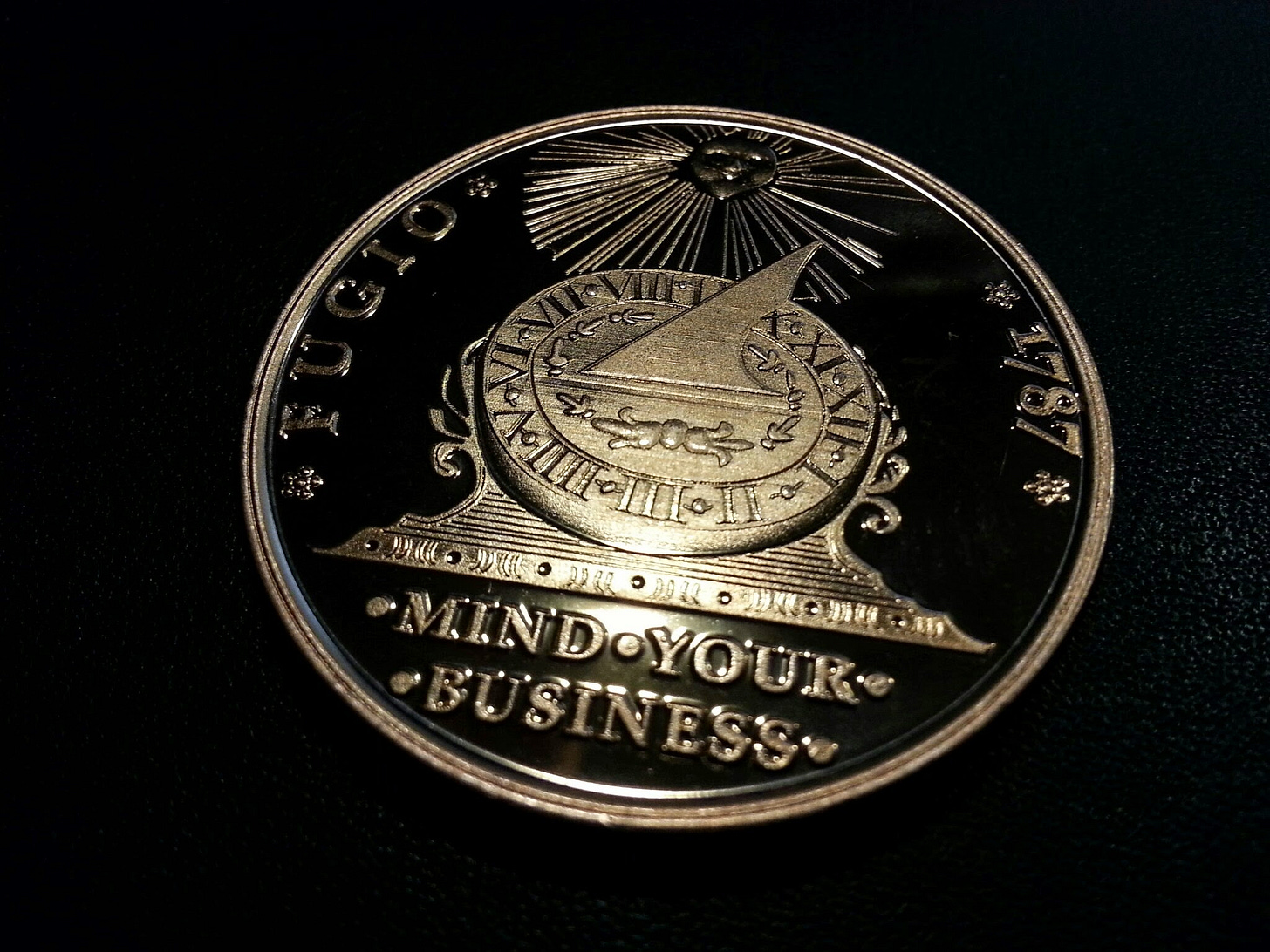Mind your business all the time
On antique coinage, Senatorial holds, and Ben Franklin's advice for staying ahead of bad times
Benjamin Franklin is credited with placing the phrase "Mind your business" on the first American penny. It's good to take the advice in a metaphorical-social sense (as in, "Keep your nose out of other people's affairs"), but Franklin undoubtedly meant for it to be taken in a plainly literal sense as well.
■ To say "Mind your business" is a deceptively optimistic encouragement, for it assumes that the world is improvable and that it improves because of deliberate human action. Franklin didn't say "Pray for better things" or "Alas, all is for naught". He said, in effect, "Get to work doing your part to make things better".
■ "Mind your business" carries an implied urgency. Even when matters are generally headed in the right direction, setbacks are inevitable. One never knows when things could go wrong, or how bad they could get, so the time to tend to affairs is right now.
■ While Russia continues assaulting Ukraine, Israel is exacting revenge on Hamas for committing unspeakable atrocities against civilians. But one United States Senator has put a blockade on senior military promotions, another has halted the process of confirming ambassadors, and the House of Representatives doesn't even have a nominee for Speaker. These domestic problems -- all of which should have been cured long ago -- only hamper our ability to respond soundly to exigent circumstances.
■ Optimists ought to be united and emphatic on this point: We can't count on luck to make things better, and the time to fix problems is when they emerge (rather than when a crisis forces the point). Franklin's advice should echo with us to "mind our business" all the time, so that we can correct our problems before urgency deprives us of options.



